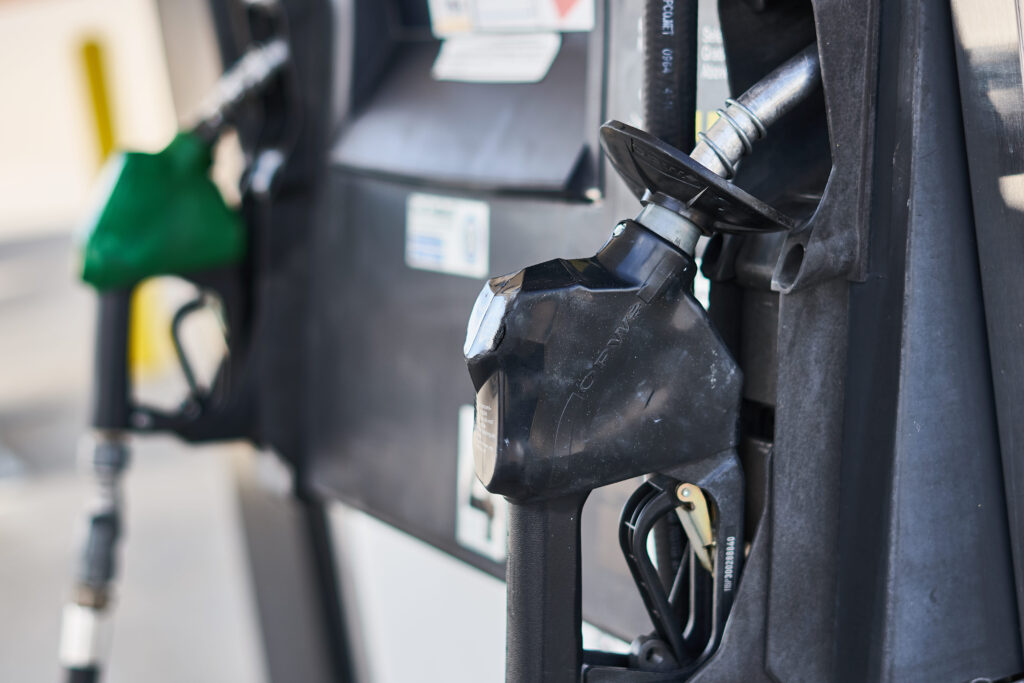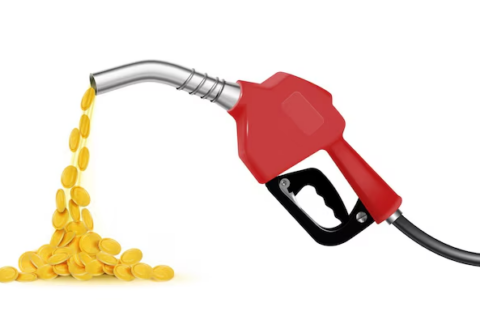The Need-to-Know: Ethanol-Free Gas

What Is Ethanol-Free Gasoline?
Ethanol-free gasoline or non ethanol gas is gasoline that doesn’t contain ethanol, a biofuel commonly blended with regular gasoline. It’s often referred to as “pure gas” because it lacks the ethanol additive. It is also called non oxygenated gas.
Ethanol is made from corn and has been around since 1908. In fact, it even fueled the first Model T. And before that, ethanol was one of the components in moonshine whiskey, so it’s nothing new.
Recently more consumers have been requesting ethanol-free fuel. To understand why let’s review some fuel history.
Before 2003, MTBE (Methyl tert-butyl ether) was a fuel additive used to oxygenate fuel. But, in 2003, most states banned MTBE because of contamination along with environmental and health risks. Ethanol was the replacement.
Today, because of the following laws and regulations, ethanol fuel is the primary fuel offered by public gas stations.
- The Renewable Fuel Standard Program (RFSP)
- Energy Policy Act
- Clean Air Act
- Alternative Motor Fuels Act
What’s the Difference With Ethanol-Free Gas?
Environmentally conscious consumers are asking for ethanol-free gas, but the problem is, it isn’t readily available. Additionally, since ethanol comes from corn, our food prices can rise with its increased use. This is because the majority of processed food has some sort of corn additive like high-fructose corn syrup.
The standard gasoline available at the pumps for our vehicles is a blend of up to 15% ethanol and gasoline. Sometimes it’s labeled E10 or E15. That’s what you get in most gas stations. So, finding fuel without ethanol is the issue.
Is Ethanol-Free Gasoline Better for Your Vehicle?
You might be wondering whether gas without ethanol is a better option for your car or other equipment. The answer depends on your needs. Here are a few reasons to prefer gas without ethanol:
- Fuel Stabilization: Ethanol absorbs water, which leads to phase separation in the fuel tank. This separation causes a few performance issues. Gas without ethanol is less prone to this problem.
- Improved Efficiency: Some older vehicles and small engines may experience improved performance and fuel efficiency with ethanol-free gasoline.
- Reduced Risk of Ethanol-Related Damage: Ethanol can corrode certain engine and fuel system components over time. Using ethanol free gas for cars can reduce this risk.
- Better Storage: Non ethanol gas is a favored choice for the extended storage of vehicles and machinery. It is renowned for its enduring stability over prolonged periods.
What’s Bad About Ethanol
Besides raising our food prices, it’s corrosive to both plastic and rubber which causes problems in vehicles and machinery. If ethanol fuel is mixed with gasoline and left to sit – for example, in a lawn mower in the winter; it’s bad news and can wreck the entire engine.
It’s important to drain any gasoline containing ethanol from equipment when you’re not going to be using it. That includes your snow blowers, weed eaters, and lawn mowers. Since ethanol is made from corn, it’s gritty and not entirely clean. Small particles can get in machine engine parts and cause problems from not starting to ruining the engine and having to buy a new piece of equipment.
Separation is also a big problem with ethanol gas. In fact, if you drain it into a container and let it sit overnight, you’ll see water in the bottom the next morning. That’s why it’s so important to drain gas from your machinery when you’re not going to use it for a while
Two Main Problems With Ethanol-Free Gas
- First off is the price, it can be thirty cents or more per gallon. If you run a large fleet, that right there is a reason ethanol-free fuel is not an option.
- Secondly, it’s tough to locate. There are a few websites that list gas stations all over the US and sometimes Canada, but before you make a long trip, call first. These stations don’t always have it available, and sometimes they only sell it for equipment, not vehicles.
Where to Find Ethanol-Free Gasoline?
With a grasp of the advantages offered by non oxygenated gas, your quest for its procurement naturally beckons. Although it may not enjoy the ubiquity of its ethanol-infused counterpart, you can pinpoint this distinct fuel variation at specific locales. These include:
- Marinas: Many marinas offer non ethanol gas to cater to boat owners who prefer this type of fuel.
- Some Independent Gas Stations: Independent gas stations, particularly those in rural areas, might offer ethanol-free gasoline. You can check online directories or call ahead to inquire.
- Online Resources: Various websites and mobile apps provide information about nearby gas stations that sell non oxygenated gas. These tools can be handy for locating the nearest source.
These two websites show where e-free fuel can be found.
Both of these sites use site visitor input to let them know who’s selling ethanol-free gas. It might not always be up to date, so it’s wise to call first.
For Texas, if you live east of Dallas and along the north-east border, there are quite a few stations that sell ethanol-free fuel. There’s also a station in Corpus Christi, and few in Amarillo, and one in Houston.
If you have an antique vintage car, it might be worth the investigation and drive to use e-free gas because of problems associated with regular gas.
The Benefits of Ethanol-Free Gasoline
To summarize, here are the key benefits of using ethanol-free gasoline:
- Reduced risk of phase separation and water absorption in your fuel tank.
- Potential improvements in efficiency and performance for certain vehicles and equipment.
- A decreased risk of ethanol-related damage to your engine and fuel system components.
- Better suitability for long-term storage of vehicles and equipment.
Ethanol-free gasoline presents itself as a compelling substitute for conventional gasoline, particularly for discerning individuals with exacting prerequisites or apprehensions regarding fuel quality and engine proficiency. Its limited ubiquity across fueling stations notwithstanding, delving into the realm of alternatives and contemplating the manifold advantages it confers upon your vehicles and equipment proves an astute course of action. Whether you elect for non oxygenated gas or the standard gasoline variant, the sage pursuit of an enlightened choice in the domain of vehicular fueling perennially stands as a prudent practice.
When is Ethanol Added?
Regular gas is transported through the pipelines, but not ethanol because there’s a concern it will eat away at the pipes. That’s why it’s added before the gas is delivered to the gas station and before Ricochet receives it.
Ricochet does not add the ethanol to fuel.
Tips for Using E10 Gas
The number one tip we can give you is not to let it sit in your tank. The shelf life is only about 90 days, so replace the gas in your tank about every two to three weeks. But if you can, get e-free gas for your small machinery like weed eaters.
Keep your equipment and engines well-tuned. Make sure you replace plastic and rubber parts that are getting worn.
The Growing Popularity of Ethanol-Free Gasoline
As more people become aware of the benefits of ethanol-free gas, its demand continues to rise. Ethanol-free fuel advantages include reduced engine wear and improved fuel stability, making it an excellent choice for those looking to extend the lifespan of their vehicles or equipment. Unlike ethanol-blended gasoline, which absorbs moisture from the air, ethanol-free gasoline doesn’t cause phase separation, ensuring more reliable performance, especially in small engines and older vehicles.
Ethanol vs. Gasoline: Understanding the Difference
The debate of ethanol vs. gasoline has sparked considerable interest due to the contrasting effects they have on fuel systems. Ethanol-free fuel does not contain the corrosive effects of ethanol, which can degrade engine components over time. This makes ethanol-free gasoline a safer choice for those with vintage cars, lawnmowers, and boats. Additionally, the lower water content in ethanol-free gasoline ensures that it stays stable for longer, particularly in cold climates where moisture can lead to fuel problems.
Ethanol-Free Fuel Storage
One of the key selling points of ethanol-free fuel is its superior fuel efficiency and ethanol performance. When stored, non-ethanol gasoline remains stable for a longer period, making it ideal for seasonal equipment and vehicles. Whether you’re storing fuel for a boat during the winter or for an RV during off-season months, ethanol-free fuel storage offers peace of mind knowing your fuel won’t degrade or cause engine trouble when you start up again.
The Future of Ethanol in Gasoline
While ethanol has been a standard in gasoline for many years, the future may see more shifts toward alternatives like ethanol-free gasoline. As the demand for cleaner and more efficient fuels rises, many are exploring the viability of reducing or eliminating ethanol in gasoline entirely. Regardless, ethanol-free gasoline will continue to be an important choice for those seeking to optimize the performance and longevity of their vehicles and equipment.
Ricochet and Ethanol-Free Gasoline
As you can see, a key issue is the availability of ethanol-free gasoline. Our availability changes all of the time mainly based on the location. Ricochet Fuel Distributors, Inc. has been supplying bulk fuel since 1988. We proudly service Texas and the surrounding states of Louisiana, Arkansas, Oklahoma, New Mexico, Georgia, Iowa, Kansas, Missouri, Ohio, Pennsylvania, South Carolina, and Wisconsin. We’d like to make you one of our satisfied customers too. For your bulk fuel needs contact Ricochet Fuel today. For more information call us at 833-925-5065.

